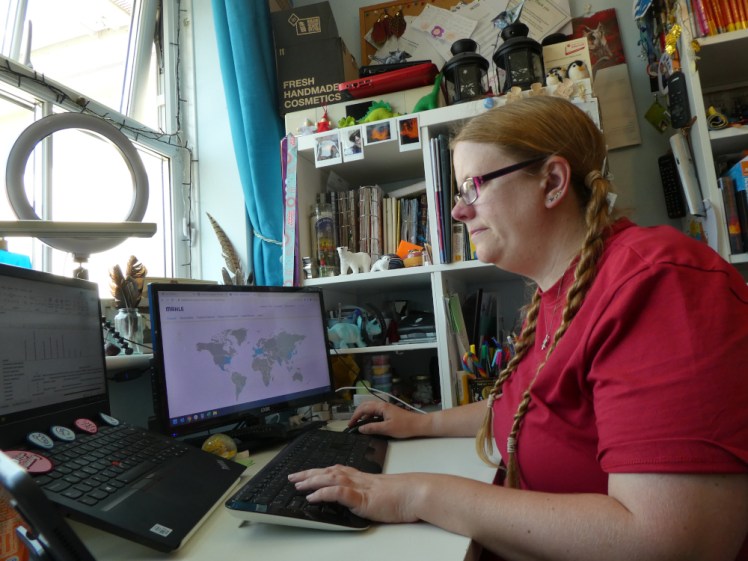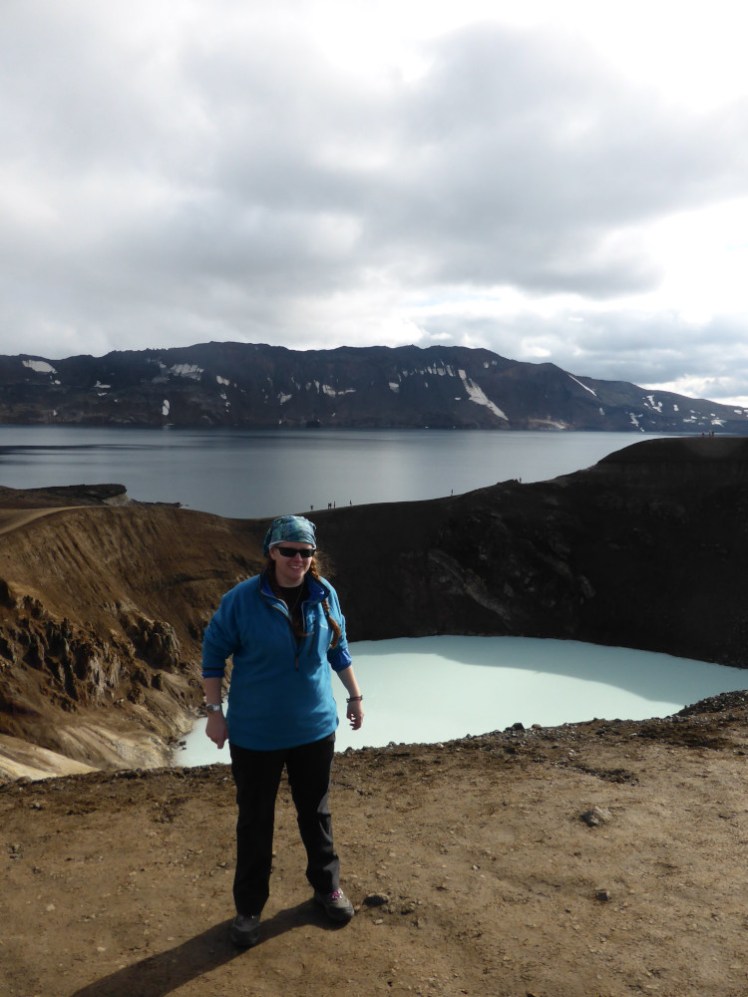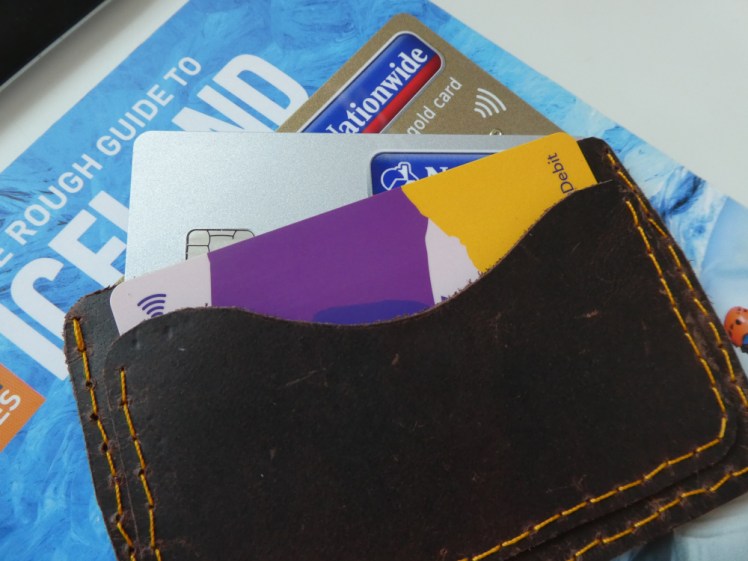At the heart of travel is money. At the heart of everything is money. I don’t know if anyone else has read the Dr Doolittle books but there’s a line from one of the wild animals that goes something along the lines of “He lives in the the land where you pay to live”. Food, water, shelter, healthcare, it all takes money. And of course, travelling takes money as well and so if you’re going to go off on your own, you’re going to have to give it some thought.
Where do you get money from?
I’ve more or less covered this back in May when I did J is for Jobs. For most people, money comes from working. A few people will have inherited wealth or their parents will pay for them and that’s great but for most of us, you need a job. Whether you work beforehand and save up as much as you need or whether you work while you’re travelling – or indeed, whether you live off credit cards and work to pay them off afterwards, work equals pay. I wouldn’t recommend that last option, by the way. Spending money you don’t have is the route to disaster. A credit card that you pay off regularly, that’s ok. I keep mine almost exclusively for flights and hotels, I have a direct debit set up so I don’t need to worry about paying it off and the result is that I haven’t gone into debt and I do have an excellent credit score. But a credit card when you don’t have any money in the bank and you’re depending on earning and paying it off much later, that’s a bad idea.

How much money do you need?
That’s really going to depend on you and your trip. Are you going for the most budget backpacking trip? Are you wanting luxury all the way? Are you away for the weekend or are you away for a year? How many activities are you planning to do? How much alcohol are you planning to drink? Are you getting around by plane, bus or hitchhiking?
Only you can answer these questions. You can approach this in two directions. You can look at how much you can afford – how much money you have or how much you can earn – and plan accordingly, or you can work out how much you want to spend and then acquire enough money. I think which of those two directions you take depends on how big your trip is or rather, whether the scale of your trip is compatible with how much you already have.
For example, if you want to spend a gap year backpacking around the world, it’s not a lot of good looking in your bank account and saying “Ok, this is how much I’ve got for a year”. Unless you’ve had some very good fortune, it’s not going to be enough. Travelling long-term is expensive, however much the budget backpackers try to make it sound like they live off tuppence and road dust per day. Make your plans. Look at accommodation, look at transport, look at activities, figure out roughly how much that’s going to cost and then go out and earn it. I know, you want to go off travelling straight out of school but unless your parents are willing to fund it or you’ve been saving from weekend jobs for several years, you’re going to have to wait until you can afford it. That’s why my own gap year took fifteen years to finish, doing a week here, four days there. I didn’t have the money to just go off for a year.

If you’re doing a smaller trip – let’s take my recent trip to Helsinki as an example – you’re more likely to spend what you can already afford. If I can’t afford a long weekend away, I’m not going to be in a position to justify spending it on that when I’ve earned it in a few weeks/months/years. But nonetheless, I have no wish to empty my bank account, so I looked in it, I said “ok, that’s too expensive, let’s look away from that area and find accommodation that’s less than £x per night”, “flights on that day are too expensive so let’s look at these flights instead” and so on, fitting my trip to what I already had.
How do you figure out a budget?
This isn’t really a thing that I’m a specialist in but broadly, open your favourite spreadsheet software. Make a sum formula in cell B2, which adds up everything you put in column B. Then in column A, write down everything. Write down your travel between destinations. Write down the cost of accommodation times the number of nights you’re going to stay there – that might be as simple as “I’m going for a year, so 365 x the average price of a hostel in Thailand”. In column B, put the price. We’re not after exact figures here. HMRC/IRS are not going to examine these figures. It’s just to give you a ballpark figure. Look at all the activities and day trips you might want to do. How much are you allowing for food and alcohol? Give yourself an approximate daily budget. When we planned camps for Guides, it used to be £5 per person per day and now the recommended figure is closer to £10 but bear in mind that’s in the UK and includes enough food to give active teenagers enough energy to thrive outdoors for a few days. You’ll obviously need to push that number up if you’re planning to eat at restaurants, down if you’re living out of supermarkets and probably somewhere in the middle for street food.

Travel, accommodation, food, activities, souvenirs, nights out, spare for emergencies – write it all down. When you’ve got everything you think you’ll need, take a look at your total figure, take a moment to get over the shock of how much this is actually going to cost and add on 5-10% for all the things you haven’t thought of, all the times you’re going to have a few more drinks than you expected, all those adventurous activities you don’t yet know even exist. It’s always better to have too much money than not enough.
For some help with budgeting, Backpacking Bananas often does a “what did I spend?” video after a trip and Karl Watson has a budget breakdown of all his trips.
How do I keep my money safe when I’m travelling?
The smart answer to this is to get a travel card. They work exactly like a normal bank card except the “bank” they’re drawing from is an online account that you’ve transferred money to. You put as much money as you want at one time into that account using the app that invariably comes with the card and when you’ve spent it all, you transfer some more. This way, if your card gets stolen, you’ve only lost what you’ve transferred onto it and not the entire contents of your bank account. It also means you can, for example, limit what you’re going to spend on a night out. If you’ve only got £20 on your card, you can’t accidentally blow the bank on cocktails in buckets and wake up hungover and broke.
Now, I’ve never used one of these cards so I can’t recommend a specific one but I’ve seen people talk about Revolut and Wise and the internet also seems to recommend Easy FX, N26 and Monese. Please do your own research on which works best for you, though – consider this nothing more than a nudge that these are a thing that exists.

If, for whatever reason, you decide not to go down that route, my dad would recommend travelling with a credit card over a debit card. Now, I know in the US in particular, it’s incredibly easy to run up life-changing amounts of debt on a credit card but it does offer a certain distance from your money that can give you some protection. In the event something goes wrong, it’s easier to take it up with the credit card company than your bank and you can usually do it before the mis-spent money leaves your account. Again, do your research on this.
Third, try to have a backup source of money. A family member who can transfer enough across in an emergency to see you through, perhaps. A bank account you use only for travel, transferring from your main account as and when. A second credit card sewn into the lining of your pants. The idea is that if your card gets lost, stolen or cloned, you lose as little as possible and if you find yourself with a cancelled card, you still have access to money somehow.
What about cash?
Don’t carry huge amounts of cash. Forget getting it stolen, it’s just plain too easy to lose as well as being a pain and if something does happen to it, you’re pretty much on your own. Cash is useful, though. I’ve carried the same handful of cash backwards and forwards to Iceland three times in the last year and a half and not touched a single coin. I did end up having to buy a metro ticket to the airport in Paris in cash because there was a systems error at my local station but I carried that cash to and from Germany and I carried what was left of it to and from Finland. On the other hand, Malta was virtually cash-only and when I went to Rome, I spent the entire time frustrated that I needed cash and there didn’t seem to be an ATM in the entire city. As a general rule, I try to keep enough cash on hand to get back to the airport at the end of the trip and to have a bit spare in case I need to get some lunch. But obviously, that depends on whether your destination is big on cash or on card, so look into that too.

That’s everything I can think of about money. Earn it, don’t overspend and keep it safe. If I’ve missed anything obvious, leave me a comment and I’ll try to help.